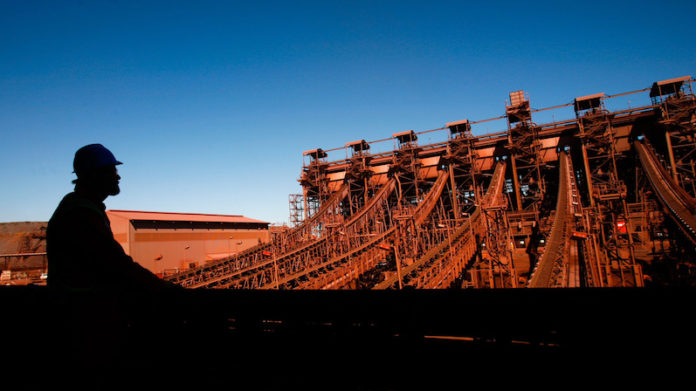
ANGLO American forecast COVID-19 induced production hits at its South African operations, and said work on its Quellaveco copper project in Peru would be further delayed owing to an extended lockdown aimed at stemming the virus.
The impact of COVID-19 could eventually get worse, but in South Africa – which today marks the first day of a 21-day near-total lockdown – Anglo has negotiated a plan aimed at minimising business disruption.
It said in an announcement that its coal and iron ore operations were continuing, albeit on variously reduced workforces. Anglo American CEO, Mark Cutifani, said the firm was steadfastly focused on employee safety.
The group’s listed investment, Kumba Iron Ore, was expected to produce between two to three million tons less iron ore in the 2020 financial year after it reached agreement with the South African government to reduce the workforce by half during the lockdown.
Anglo’s thermal coal production from South Africa would be 1.5 to two million tons less for the year whilst production of refined platinum group metals (PGMs) from Anglo American Platinum (Amplats) was on hold owing to a previously disclosed processing facility shutdown that would see it produce about 900,000 oz less PGMs in 2020.
In a separate announcement, Amplats said that all the parts required for the repair of one of the refining facilities at its Waterval plant in Rustenburg were now on site. The repair time remained at 80 days as previously indicated. Amplats’ first refined PGM would therefore be on the market from May 25. A second unit is also down – caused by an explosion in February – and would only be repaired by the second quarter of 2021.
Amplats would wind down mining at Amandelbult, its joint venture with African Rainbow Minerals at Modikwa and its Kroondal joint venture with Sibanye-Stillwater in line with government COVID-19 lockdown orders. Amplats’ Mortimer smelter and Waterval would also be locked down, it said.
However, the mechanised mines remained operational on a reduced basis, crucially at its flagship and most profitable asset Mogalakwena, an open-pit mine. Mototolo would also continue to operate as would the Polokwane smelter which produces furnace matte which is the state of PGMs prior to refining.
Mines and energy minister, Gwede Mantashe, said on March 25 that certain mining processing and coal production facilities would be allowed to operate through the lockdown as they were deemed essential services.
Kumba’s Sishen and Kolomela mines would continue to operate at 50% of total workforce whilst at De Beers the Venetia mine remained open but with its workforce slashed by some three-quarters.
Employee numbers at Anglo Coal operations had been reduced by between 50% and 70% whilst the Isibonela colliery, which supplies Sasol’s fuel production facility and is therefore deemed essential to South Africa’s energy security, is operating with a 20% reduction in its workforce.
The rail and port logistics infrastructure remained open in order to support the export of iron ore and coal. Supply chain planning was also in place, Anglo said.
QUELLAVECO
Anglo did not comment on the impact to project budget owing to a delay in the resumption of construction at Quellaveco. This was after Peru extended the initial 15-day national quarantine period by 13 days, now ending on April 12.
The group said on March 17 that it did not expect the stoppage to be disruptive: it was ahead of schedule and on budget “… and we would expect to be able to accommodate this slowdown within our market guidance on both timing and costs at this stage”.
The $5bn to $5.3bn Quellaveco copper project is budgeted to begin first copper production in 2022. During the first ten years of full production, the mine is expected to produce approximately 300,000 tons per year at a cash cost of $1.05 per pound of copper.
Development of Anglo’s newest project, Woodside polyhalite in the UK, had also been idled in line with the country’s measures to prevent the spread of COVID-19.
“Production from Anglo American’s major operations in other countries has not been impacted materially to date and we are taking all appropriate preventative measures to reduce the probability of the virus spreading, including by reducing the density of people on our sites,” the group said.











